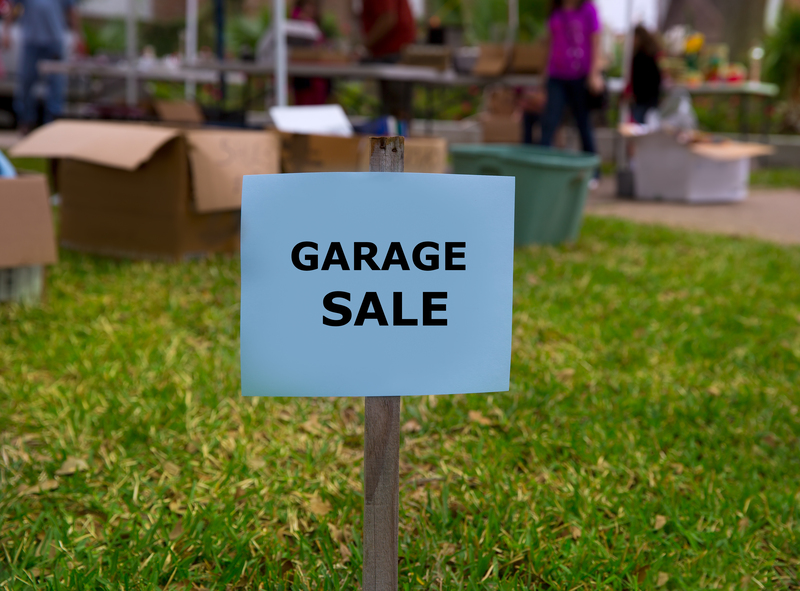Understanding Hard Rubbish: Tips for Proper Disposal
In today's fast-paced world, waste management becomes increasingly important. Among the various types of waste, hard rubbish poses unique challenges. This type of waste encompasses large household items that cannot be discarded through regular waste collection services. Here, we delve into comprehensive tips and strategies for proper disposal of hard rubbish, ensuring we minimize the environmental impact and promote sustainable living.
What is Hard Rubbish?
Hard rubbish, also known as bulk waste, includes items that are too big to fit in a standard trash can. These are often appliances, furniture, electronic waste, and other bulky items. Understanding what constitutes hard rubbish is critical for effective disposal.
- Household Appliances: Refrigerators, ovens, dishwashers
- Furniture: Sofas, mattresses, wardrobes
- Electronics: TVs, computers, old gaming consoles
- Carpeting and flooring materials
- Outdoor equipment: Barbecues, lawn mowers

Environmental Impact of Improper Disposal
Improper disposal of hard waste can have a significant impact on the environment. Landfill overcrowding is a major issue, as these items take up space and can take years to decompose. In addition, harmful chemicals from electronics and appliances can leach into the soil, affecting wildlife and water sources.
Proper Disposal Methods for Hard Rubbish
Effective disposal of hard rubbish requires a strategic approach. Here are several methods you can consider:
1. Council Collection Services
Many local councils offer scheduled hard rubbish collections throughout the year. Residents can leave their hard rubbish on the curbside for collection. It's crucial to check what items are accepted and the specific dates for collection in your area.
2. Recycling Facilities
Some materials found in hard rubbish can be recycled. Take the time to separate items into recyclable parts. For example, metals and electronics might be accepted by local recycling facilities. Recycler Finder apps can help you locate the nearest center.
3. Donation and Reuse
One person's trash is another's treasure. Before discarding your items, consider donating them to charities or nonprofits. Organizations like Goodwill or the Salvation Army often accept furniture and appliances in good condition.
4. Hire a Skip Bin
If you're clearing out a lot of hard rubbish at once, hiring a skip bin might be the best option. It's convenient and it ensures your waste is dealt with responsibly. Skip bin providers can guide you on how to sort waste correctly.
5. Sell or Give Away
Online platforms such as eBay, Craigslist, or community marketplaces are excellent places to sell items that are still in usable condition. Alternatively, you can simply give them away, using social media groups or community boards.
Safety Tips for Handling Hard Rubbish
When dealing with heavy and potentially hazardous materials, safety should be a top priority:
- Wear protective gear such as gloves and masks when handling items.
- Lift heavy items with caution, using proper techniques to avoid injury.
- Be aware of sharp edges, especially with metal objects and broken furniture.
Understanding Local Regulations
Each area has its own set of rules when it comes to disposing of hard rubbish. Familiarize yourself with local regulations and adhere to them to avoid fines and penalties. Regulations may cover what can and cannot be left for council collection, or what needs to be taken to disposal centers.

Benefits of Proper Hard Rubbish Disposal
- Environmental Protection: Proper disposal reduces landfill use and prevents pollution.
- Resource Conservation: Recycling and repurposing conserve natural resources.
- Community Well-being: Clean disposal supports a healthier and more pleasant living environment.
Conclusion
By understanding what constitutes hard rubbish and employing proper disposal methods, you can significantly contribute to a cleaner, more sustainable environment. Whether utilizing council services, donating, or recycling, each step you take aids in protecting our planet for future generations. Embrace your role in effective waste management and lead by example in your community. Remember, every effort counts when it comes to environmental preservation.